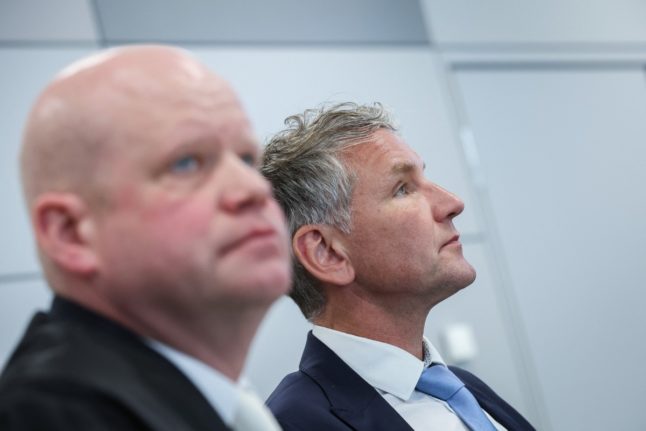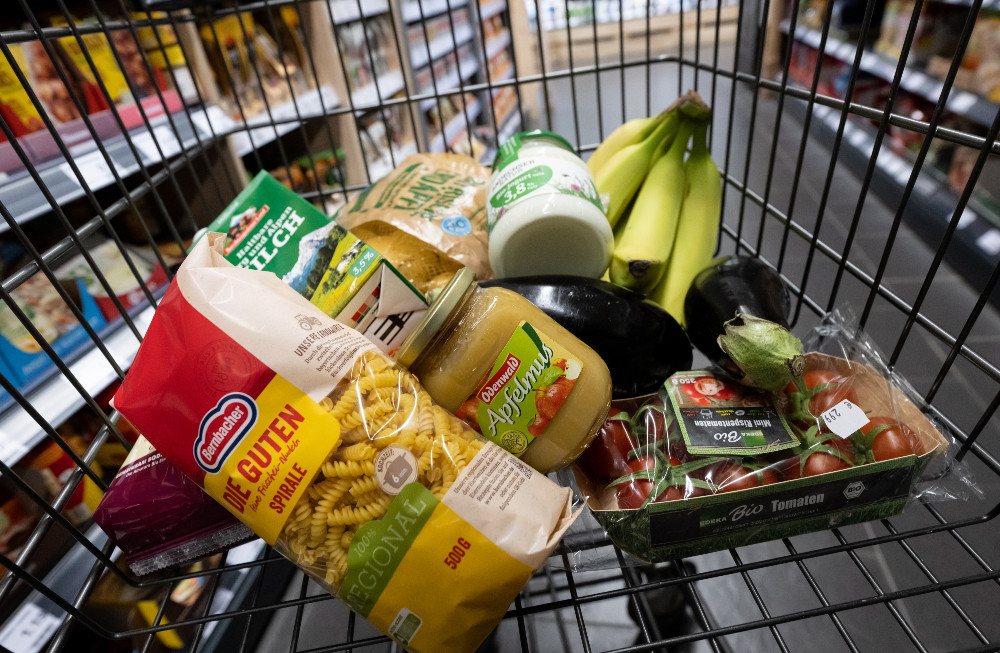‘Blood rain’ may hit North Rhine-Westphalia as Germany heats up
Meteorologists predict that Germany will experience a mix of sunshine and showers over the next few days – and a phenomenon known as ‘blood rain’ could hit western parts of the country.
Temperatures this week are expected to hit highs of between 24 and 28C in the east and south of the country as warm air flows to Central Europe from North Africa. In the west and north, the mercury is expected to reach between 20 and 24C. With onshore winds, it will be cooler on the coasts, reports the DWD.
Adding to this heat is a large cloud of Saharan dust. Because it is expected to rain at times in the west, it could look red in some places.
‘Blood rain’ – which is a colloquial phrase rather than a meteorological term – occurs when relatively high concentrations of red coloured dust or particles get mixed into rain, giving it a red appearance as it falls.
“When summer heat comes to us, Saharan dust is not far away,” said meteorologist Dominik Jung in his weather forecast on YouTube at the weekend. “We’re talking about blood rain”, he added. “Here and there, it will get pretty dirty on the paintwork and car windscreens.”
Inflation rate remains unchanged in April
Germany’s inflation was unchanged in April, official data showed Monday, holding at a three-year low as hopes grow that the European Central Bank will soon start cutting interest rates.
Consumer prices in Europe’s largest economy grew 2.2 percent from a year ago, according to preliminary data from federal statistics agency Destatis.
It was the same rate as in March, and its lowest level since April 2021.
Closely watched core inflation – which excludes volatile energy and food prices – eased to three percent from 3.3 percent in March.
Ulrich Kater, an economist from DekaBank, said the “further easing of the core inflation rate clears the way for the ECB to cut interest rates in June” at its next meeting.
But he cautioned that policymakers must remain vigilant to risks that could push inflation higher, in particular wage growth.
The steady German inflation rate was helped by a fall in energy prices, which were down 1.2 percent on the same month last year.
Germany gets ready for public holiday (and a new month)
International Workers’ Day on May 1st is a public holiday in Germany so most people will have the day off work and shops will be closed.
Wednesday is also the start of a new month where several changes are taking place, including a flight ticket tax hike and a new bio-diesel at gas stations.
There are also some great events around the country to check out in May as spring comes alive.
READ ALSO:
- ‘Tag der Arbeit’: What to do on May 1st in Germany
- Everything that changes in Germany in May 2024
- Seven unmissable events happening around Germany in May 2024
Political motive ‘not excluded’ in Ukrainian deaths in Germany
The suspected murder of two Ukrainians by a Russian in southern Germany is being investigated for a possible political motive, prosecutors said Monday.
The public prosecutor’s office in Munich, responsible for investigating politically motivated crimes, has taken over the case because such a motive “cannot be ruled out”, a spokesman told AFP.
A 57-year-old Russian suspect was arrested after the two Ukrainian men were found with stab wounds in a shopping centre in the Bavarian town of Murnau on Saturday evening.
The circumstances remain unclear, according to investigators.
The two victims aged 36 and 23 were Ukrainian soldiers who were in Germany for medical rehabilitation, according to the foreign ministry in Kyiv.
German ex-soldier admits spying for Russia as trial opens
A German former soldier on Monday admitted he had spied for Russia at the start of his trial, saying he wanted to avoid the escalation of the war in Ukraine.
“It was wrong. I stand by that,” said the defendant, named only as Thomas H., who is at the centre of one of several espionage cases uncovered in Germany since Russia’s war on Ukraine in February 2022.
The 54-year-old is accused of passing on information from his post in the military procurement service.
Prosecutors say he photographed old training documents related to munitions systems and aircraft technology and dropped the material into the letterbox of the Russian consulate in Bonn.
The defendant “approached the Russian general consulate in Bonn and the Russian embassy in Berlin and offered his cooperation” in May 2023, prosecutors said.
“He passed on information he had obtained in the course of his professional activities for it to be passed on to a Russian intelligence service.”
The defendant said that the accusations against him were “broadly” accurate.
He contested a claim by prosecutors that he transferred information to the Russian consulate on a CD.
Instead, he said, the documents had been printed out and contained “nothing bad”.
Thomas H. said his concern about a possible escalation in the war in Ukraine led him to reach out to the Russian side.
More precisely, he was worried about the possibility that deliveries of heavy weapons systems by Berlin to Ukraine would draw Germany into the conflict.
Thomas H. also indicated he had become dissatisfied with the government in Berlin and a perceived lack of concern for the safety of German citizens.
He is standing trial in the western city of Düsseldorf, with hearings set to last until late June.




 Please whitelist us to continue reading.
Please whitelist us to continue reading.
Member comments